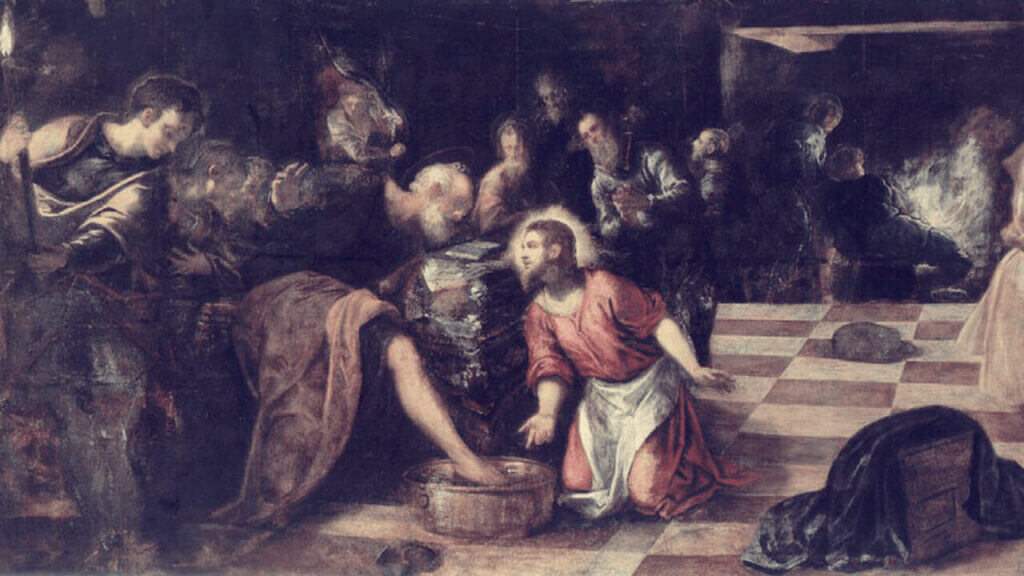
I’d like to humbly share five lessons for Bishops from my own marriage and those I have worked with.
To the Bishops of the Catholic Church Who Are Not Complicit in Scandalous Crimes:
(To the Bishops who did know about the scandals and coverups, I’m not ready to write to you yet. You belong in jail or least retired. Once you are there I may be ready to speak to you.)
There are many good men though among the rest of you. I’ve met some of you and know you love Jesus and his Church. I hope and pray you are part of the coming purification and reformation of the Catholic Church. With filial piety, I offer myself to you in this regard in any way I can help.
St. John Paul II called the two vocations of marriage and celibacy co-educative. St. Paul explains that marriage is, “in reference to Christ and the Church,” and you are in the highest position of being Christ to your bride, the Church.
As a married man, I have learned much from the example and witness of faithful celibate men and women.
I’d like to humbly share with you five lessons from my own marriage and those I have worked with. May they give you some aid in this time of great need.
1. When you hurt your wife, you don’t get to make the rules for rebuilding trust
When I hurt my wife and realize it (which may take a while), my first inclination is to fix the problem. Men who rupture the trust their wives have in them do great harm when they think they can make it better in their own way.
Marriages that grow from deep ruptures – even when something as bad as an affair occurs – only heal when the perpetrator of the offense drops the defenses and opens up with vulnerability to listen to and understand the needs of the offended spouse.
A “statement” of apology, absent of defensiveness or excuse is certainly an admirable first step. (Statements mixed with defense or explanation typically only add to the conflict). But these apologies need to quickly be followed with openness to hearing the extent of the pain, empathizing with it, and humbly deciding to work on oneself to change what needs to be changed.
The hurt spouse chooses the parameters for rebuilding trust if a man wants trust rebuilt.
2. Lead in weakness

This can be one of the most difficult lessons for men to learn.
Frankly, I know very few married men, and even less celibate men, who live this way. It is something I struggle with often. We are charged with the great responsibility of providing for and protecting our families.
Any show of weakness is typically seen as compromising to this high calling. “I need to lead people to perfection by showing them what perfection looks like,” is the typical thought process.
Weakness means two things: It means accepting that we are not God, and it means accepting that we are not perfect.
First, like St. Joseph, we need to have a constant disposition of humility in seeing ourselves first as sons before we are fathers. Anything we can give to our bride or our children comes first from our Father.
St. Joseph listened first to receive his direction from God. He took Mary into his home after he was told to do so in his dream. He was led to lead the Holy Family into the desert. Doing what we are told and letting ourselves be led doesn’t come easily when we also have to remain strong to provide and protect.
We need to learn that the weakness of humility and sonship is our greatest strength.
Second, and more practically, we make mistakes. It is vitally important that I am willing to admit the mistakes I make, even with my children, and lead my family by example.
I need to accept my mistakes and lay myself down tirelessly to make up for them. I need to be willing to grow. I need to model for them that it is ok to not be in total control of everything at all times because I am not God and that it is ok to admit my mistakes and atone for them because I am also not yet a perfect human.
3. Lead in strength
Our masculinity is good. This is something I feel no support for in a society that wants to devalue my core values of masculinity.
God made me a man for a reason, and through my masculinity, He has positioned me to provide, protect, and lead my family in a particular way that is different from my wife.
My strength comes from my weakness- recognizing I am not God and being ok with admitting my mistakes to those I love. That is the source of my strength, and when it is flowing, the way I can lead, provide, and protect my family is truly a wonder.
He has given me the courage to stand for Truth, Goodness, and Beauty without counting the cost. Grace builds on nature, and my courage builds on testosterone.
My masculinity is good. I can suffer tremendous pain for the truth (or small discomforts, which are sometimes more real and more difficult). I can fast for my family. I can do penance for my family. I can give up the comforts my hedonistic drives would love to indulge.
He has given me a voice that can rise above the chaos and lead, first my family, and then even my neighbors or community if appropriate. When strength is derived from weakness, my family trusts me, they respect me, and they are led, provided for, and protected by me.
4. I have to submit myself to my wife as she is called to submit herself to me

When men think our position of leadership, provision, and protection makes us superior, we turn into male chauvinists and misogynists.
I don’t deserve comfort, rest, or accolades any more than my wife does. I don’t deserve more respect than she does. I am not called to lord my position over her, but to humbly submit myself and my position to her service.
If I am called to lead, as I am, I am called to lead in the example of Christ, who leads by washing feet. Washing feet can’t be for me a symbolic liturgical tradition, empty of the virility Jesus modeled. Washing feet is impotent as an annual performance.
Submission means joining with my family, understanding their needs, and serving them out of love.
This also means I need to recognize the tremendous, invaluable, and essential position my wife has in my life and in the life of our family. Without her, I do not exist as I am. Woman is to man what in is to out. One does not make sense without the other.
Practically speaking, my wife has a primary focus on what is happening internally, and I have the skills to practically focus on the external. She nourishes new life internally, and I lead, provide, and protect externally. One is not more important than the other. (Actually, a case could be made for the feminine role being more important if these things were meant to be compared in such a way).
St. John Paul 2 reminds us that St. Joseph learned how to submit himself to the Father by witnessing Mary’s example. His fiat followed hers. It is silliness at best, and misogyny or even abuse at worst, to imagine the male role is more important. Note: Chauvinism and clericalism are the same things.
5. Spend more time listening than you do talking or doing
We need to make time for this. I want to work, fix things, or find almost anything else to do to get out of the difficulty of relationships.
My wife is made to focus, with what seems to me like superhuman skill, on another person. I am made to take care of the environment around me, not the person formed inside a person. Focusing on the “environment” can be a nice diversion from focusing on a person.
Dying to myself in marriage, submitting myself to my wife, and fully receiving all of her, including her feminine genius, means being transformed by what I receive.
It means learning how to listen, how to communicate, and how to value the person above all things.
It reminds me of the purpose God created me for. Whom am I leading, providing, and protecting? Whom do I live for? Ultimately God, but daily my wife and children.
If I lose sight of that, it makes my work empty and pointless. When the conflicts come, it is very easy for me to ignore, deflect, and avoid. It is unimaginably difficult for my wife.
Women feel something that men don’t when there is a rupture in the relationship, and that is what we are called to learn from and develop in ourselves.
Especially when things get bad, it is our responsibility to listen and respond to our brides. We need to put aside our projects, recognize our inclination to avoid, and with the God-given strength and courage that serves us so well in other areas of our life, push ahead in nurturing the relationship.
Practically this means – 1 – scheduling time for conversations and – 2 – deeply listening to and caring about where my wife is coming from.
Bonus Lesson

It’s all in the Theology of the Body. We are brothers and sisters in Christ before we are part of a “hierarchy.”
The only thing that matters is that we are made for union with God through Christ.
You say the words in each Mass, “Through Him, With Him, and In Him,” I receive those words, we are both called to live them. The communion of the Trinity is the source of our communion, a communion of saints, and a communion of marriage. This is what I taught my wife, and this is what I am teaching my children. Plainly, it is the Gospel.
Teach your ecclesial bride, and teach your priestly children. Sanctify your bride, cleansing her in the water with the word, present her to God in splendor, without spot or wrinkle or any such thing, that she might be holy and without blemish.
This is the greatness of your calling, dear brothers in Christ. We need you to man up and become the fathers and lovers God has ordained you to be!
“Husbands, love your wives, as Christ loved the church and gave himself up for her, that he might sanctify her, having cleansed her by the washing of water with the word, that he might present the church to himself in splendor, without spot or wrinkle or any such thing, that she might be holy and without blemish.
Even so husbands should love their wives as their own bodies. He who loves his wife loves himself. For no man ever hates his own flesh, but nourishes and cherishes it, as Christ does the church, because we are members of his body.
“For this reason a man shall leave his father and mother and be joined to his wife, and the two shall become one flesh.” This is a great mystery, and I mean in reference to Christ and the church; however, let each one of you love his wife as himself, and let the wife see that she respects her husband.

The level of chaos and crisis in the church now is overwhelming, and it only promises to increase. I have been thinking, praying, and reading through a lot of what’s out there, and I want to provide a mini-series of thought on the matter.
This mini-series consists of three posts:
- 5 Lessons for Bishops From a Married Man During the Church Crisis (found on this page)
- 5 Things to Know about the Church Crisis
- 5 Things To Do During the Crisis

